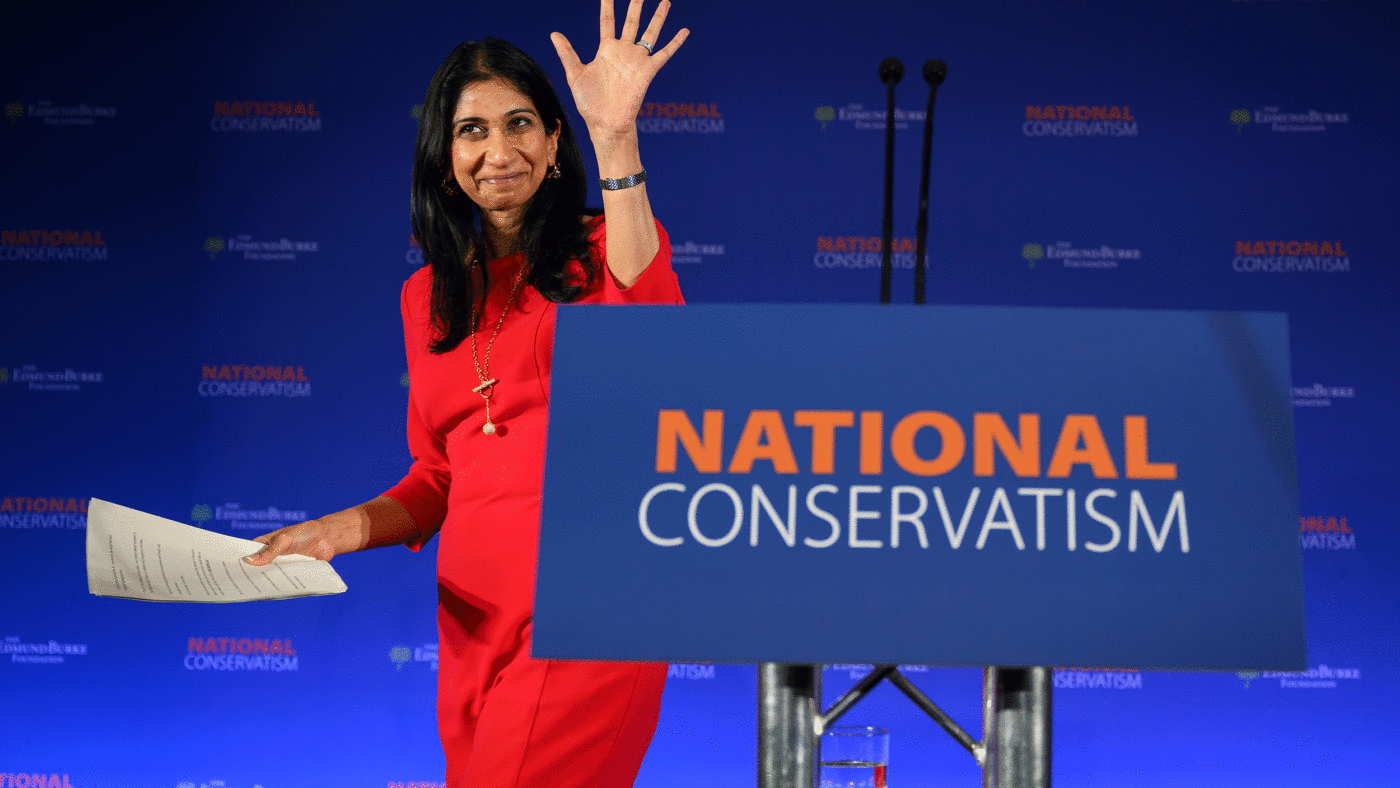They came, they saw, they NatConquered. That’s the impression you’d get of this week’s National Conservatism Conference if you paid attention to Twitter scribblers of a progressive bent. The Emmanuel Centre shebang is taken as some sort of far-right takeover of the Tory party, to be either lamented by Gary Lineker types, or celebrated by a Labour party crawling towards the centre.
This does the whole affair an obvious disservice. Having attended the conference for the last three days, I can say it was a worthwhile effort to explain why, after 13 years of Conservative government Britain isn’t more Conservative – the central complaint of Tory members. Whether it is the foundation of a new political movement, or the basis for a future Conservative government, is a different matter.
‘National Conservatism’ is the brainchild of Yoram Hazony, an American-Israeli academic, chair of the Edmund Burke Foundation, and author of Conservatism: A Rediscovery – a clarion call for conservatives to, in his view, rediscover the importance of the nation. CapX readers will be concerned to hear that Hazony argues that ‘the free market cannot be absolute’. Unsurprisingly, Liz Truss stayed away from the conference, preferring the comforts of Taiwan.
At the heart of the National Conservative mission lies the idea that the ‘fusion’ of conservatism with economic liberalism under Margaret Thatcher and Ronald Reagan in the 1980s lost its way in the following decade. An older tradition of faith and nation has been overwhelmed by global capitalism and libertarian social values. A restoration is required; the centre cannot hold.
As a conservative, I sympathise with the aim to be ‘an intellectually serious alternative to the excesses of purist libertarianism, and in stark opposition to political theories grounded in race’. As a Brexiteer, I’m paid up to a ‘commitment to a world of independent nations’. But as an Englishman, I am sceptical about whether national conservatism can work this side of the Atlantic.
This is a movement which claims to be a celebration of national traditions, but it is itself an American import. Arguing that politics should be ‘rooted in Christianity and its moral vision’ may play well in rural Alabama, but British voters tend to look slightly askance at any politician who starts banging on about the Bible. The recent treatment of Tim Farron and Kate Forbes are cases in point.
That is not to say that faith is a bad thing, or that politicians who are believers can’t make it to the top – after all, the Prime Minister is a committed Hindu. But a movement aiming to build a new politics on ‘Christianity and its moral vision’ will struggle in a country where weekly Church attendance is under 1% of the population.
Nonetheless, I was determined to keep an open mind, especially as the list of speakers contained plenty of names I respect. Yet their eclecticism raised another problem. As coherent as the personal philosophy of Hazony and his allies might be, one got the impression that, for some speakers, National Conservatism meant a chance to promote their book. Being a NatCon is a useful grift.
Or a platform for leadership bids – hence the eye-catching attendance of Suella Braverman a week or so after the local elections. Of course, she was booked in far in advance. But coming at a time where annual net migration may surpass a million for the first time, and as the Cabinet is split over numbers of students and fruit-pickers, any intervention was likely to make a splash.
But Braverman’s attendance highlighted the central problem the Government has with right-wingers. You are the Home Secretary: why are you complaining to us that immigration is too high, or that the tax burden is too large, or that kids are being taught woke nonsense in school? All this has happened under the Tories. The better approach is Michael Gove’s: a studious determination to avoid committing news.
Other speakers were not quite so shy. Had the three days been quieter than a church mouse, the perpetually outraged would still have found something to get worked up about. But between David Starkey and Douglas Murray doing a Basil Fawlty, the familiarity of Danny Kruger and Miriam Cates with the facts of life, and the imminent arrival of the next eco-loon, it consistently failed to be dull.
Entertaining is all well and good. What about informing and educating? Plenty of speakers made interesting points, with Sebastian Milbank’s disquisition on the need for a new national narrative and Lois McLatchie’s on the need to challenge the thought police being particular highlights. A lot, however, wasn’t very new or consistent.
The problem with the conference’s formatting was that speakers spoke one after another. This made for successive lectures, rather than a debate. Which was a shame, as clarity on what ‘national conservatism’ in a British context could be was not reached. At times, it seemed to be whatever the speaker wanted it to be – doubly so if it got a clap from the audience.
So we got all the old tunes. David Frost and Jacob Rees-Mogg made the case for reheated Trussonomics; Murray and Melanie Philips hoped their flirtation with neoconservatism was forgotten. Daniel Hannan and Danny Kruger are both fabulous intellects and speakers, but one is a Whig and the other a Tory. Restaging Victorian battles over free trade is hardly a forwards-looking agenda.
Very little will thus immediately come of the heat of the past few days. Do not expect Kruger or Cates to be the next Tory leader. The right recognises the need for renewal, and gathering a lot of interesting people in one place to talk isn’t a bad start. This conference was a useful starting point, then, even if national conservatism might not be the destination.
Click here to subscribe to our daily briefing – the best pieces from CapX and across the web.
CapX depends on the generosity of its readers. If you value what we do, please consider making a donation.


